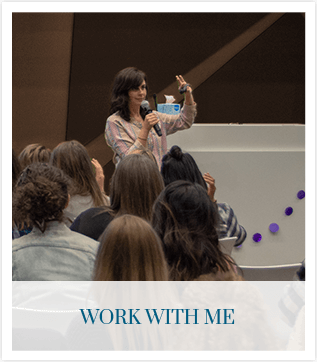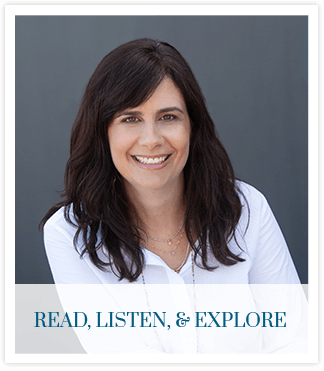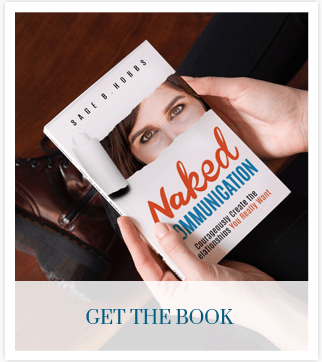Getting real about what matters most
In May of 1999 I hugged my dad at the airport and headed to the terminal to board a flight to Kenya. I was a 21 year-old, new college graduate on my way to do something I’d wanted to do since childhood – go to Africa.
I was both terrified and thrilled out of my mind.
My experience in Kenya fundamentally shaped who I am. Through both the gentle messages that wove themselves into the fabric of my identity and the more overt lessons that restructured the framework through which I view the world – I did not return entirely the same.
In the first few days of the trip, our group of about 20 college-age students was returning to our bus after lunch at a local restaurant in Nairobi. Our lovely and wise Kenyan bus-driver- tour-guide-host had parked the bus next to a roadside trash pile. There were children and teens picking through the debris. Some with bloodshot eyes. Some with disabled limbs. Some only about 7 years old. Some just a few years younger than me – my peers.
I felt helpless. I felt guilty. I felt ashamed. I felt sad. I felt furious.
I felt the unfairness of it all.
And I still struggle with those feelings and how I can meaningfully share them and do this work of communication for human connection powerfully.
Many times during my trip I encountered poverty more extreme than any I’d seen before, and quite different from what I’d witnessed working with kids in West Philly in college.
I have countless stories from that experience, half of my lifetime ago.
It’s hard to write about the experience clearly, as I never want to contribute to a simplified and one-sided representation of all of Africa. Because as much as the poverty, and the structural lack of access to opportunities, impacted me deeply – I was equally shaped by the incredible joy, generosity, and gratitude during my time in Kenya.
Never before (or since) had I experienced the kind of exuberance and open-heartedness that I did during my short 3 months in Ebuyalu, Kenya.
So, while I recognize that stepping into conversations about cultural perceptions is scary and messy – I’m increasingly clear that talking about the hard things is something that I must do, that we must do.
I just spent three days with one of my dearest friends of 20 years. She flies out from the East Coast every year so that we can talk for hours, cook amazing food (mostly she cooks and I eat), dream up our next big things, and problem solve the challenges we’re facing (both personally and globally.)
She and I were placed as village partners in Kenya that half a lifetime ago. We lived with families about a 15 minute walk apart, along a red clay path, around towering boulders and rocky flats where corn maize lay drying in the sun.
And now, we stand in my kitchen, watching our kids muck about in the muddy backyard, drinking a glass of wine and still talking about the hard things of inequity, sexism, racism, educational disparity, and how the heck to parent through all of it.
Since our time together in Kenya, we’ve both lived a lot of life. She’s lived and worked for years in Cameroon, Bangladesh, Ethiopia, and Colombia. She’s now a school administrator in a big American city, whose own issues of poverty and inequity are glaring and infuriating.
Between us we’ve lived through cancer, death of a parent, infertility struggles, divorce, and now the dance of meaningful leadership work, alongside (hopefully) good-enough parenting.
Over our wine in the kitchen, I’m talking about my new project on parenting and privilege (which is -like that trip to Kenya years ago – both thrilling and terrifying), and she’s sharing her wisdom and stories of the hard conversations she’s having about race and sexism in her personal and professional life.
We’re discussing how we respond – as two educated, white, straight, able-bodied women in positions of leadership – to the messy and complicated issues of privilege and responsibility.
We go back and forth between thinking, “There’s no way we know enough. We have to learn so much more.”
To… “We can’t wait. We’ve learned a ton. We’re still learning, but we have to keep talking about this sh*t.”
It’s like we’re our younger selves – full of anger, doubt and longing. But also our older selves – full of courage, determination and necessity.
There’s something scary we must do.
We must remember what we’re most committed to in our lives – our deepest values.
Then, we must have the hard, messy, uncomfortable conversations about the things that matter.
And, let’s take imperfect action wherever we have a voice – to talk about race, privilege, sexism, and power.
As our wine became Sleepytime tea on the couch, our conversations continued. It’s been twenty years since we walked the red earth path between our Kenyan homes. And we’re still talking about our inner desire to understand how people from all walks of life can have a voice in this big, complicated world.
Through writing, teaching, speaking, coaching, and countless person-to-person conversations, we’re stumbling our way through and aiming to be as real and as open as possible along the way.
I’ll say it a million times before my time is up – your personal happiness (and professional success) are directly related to the quality of your relationships.
In every moment we can learn from one another. Through scary conversations we can expand how we see the world, and how we contribute to it.
So, I’ll keep having hard conversations – with myself and others.
I’ll keep asking the questions I don’t know the answers to.
I’ll keep striving to speak out with my voice when it can have a positive impact.
I’ll keep stumbling to raise my kids to be responsible and kind advocates of a more just and inclusive world.
And I’m so, so grateful to be able to work my way through all of these hard things with amazing people who are willing to be in the muck and mess with me.
Thank you for showing up. For being in this conversation with me.
With much love and more “nakedness,”
Sage




